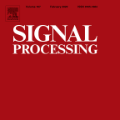One-bit quantization with time-varying sampling thresholds has recently found significant utilization potential in statistical signal processing applications due to its relatively low power consumption and low implementation cost. In addition to such advantages, an attractive feature of one-bit analog-to-digital converters (ADCs) is their superior sampling rates as compared to their conventional multi-bit counterparts. This characteristic endows one-bit signal processing frameworks with what we refer to as sample abundance. On the other hand, many signal recovery and optimization problems are formulated as (possibly non-convex) quadratic programs with linear feasibility constraints in the one-bit sampling regime. We demonstrate, with a particular focus on quadratic compressed sensing, that the sample abundance paradigm allows for the transformation of such quadratic problems to merely a linear feasibility problem by forming a large-scale overdetermined linear system; thus removing the need for costly optimization constraints and objectives. To efficiently tackle the emerging overdetermined linear feasibility problem, we further propose an enhanced randomized Kaczmarz algorithm, called Block SKM. Several numerical results are presented to illustrate the effectiveness of the proposed methodologies.
翻译:一位量化带有时间变化的采样阈值最近发现在统计信号处理应用中具有显着的利用潜力,因为它具有相对较低的功耗和低的实现成本。除了这些优点之外,一位模拟数字转换器(ADC)的一个有吸引力的特征是其比传统的多位转换器具有更高的采样率。这种特性使一位信号处理框架具有我们所说的样本丰富性。另一方面,许多信号恢复和优化问题在一位采样制度下被制定为具有线性可行性约束的(可能非凸)二次规划问题。我们展示了,特别关注压缩感知中的一次平方法,样本丰富范式允许通过形成一个大规模过定线性系统将这样的二次问题转化为仅仅是一个线性可行性问题;因此消除了对昂贵的优化约束和目标的需求。为了有效地处理出现的过定线性可行性问题,我们进一步提出了一个增强的随机Kaczmarz算法,称为Block SKM。我们提供了多个数值结果以说明所提出的方法的有效性。




